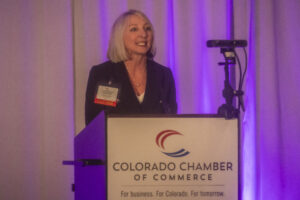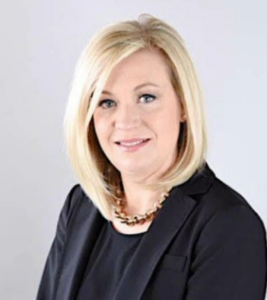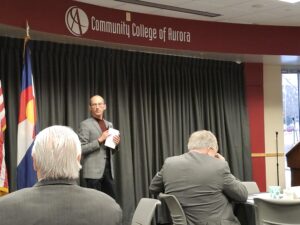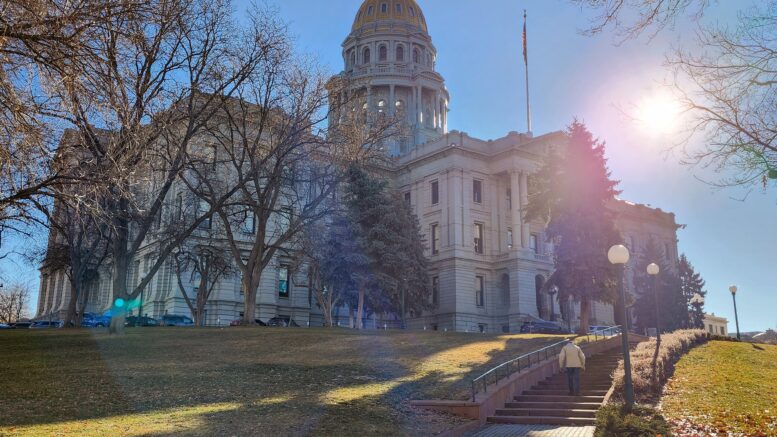Business leaders prepared for a seemingly unrelenting stream of proposed regulations, limits on fossil-fuel production and added costs to employers as the 2023 legislative session began. They got all they expected, but somehow managed to fight many bills off.
Now, as the Legislature prepares to begin its 2024 session on Wednesday, those same business leaders are approaching the 120-day period with two frames of mind.
Many are expecting that legislators whose business-opposed initiatives died or got watered down last year will come back with chips on their shoulders and bills that could prove even more burdensome to employers. Proposed mandates around air-quality permitting could get tougher, a defeated effort to limit restaurants’ scheduling practices could affect more industries and discussions about property-tax reform could lead to tax-rate hikes on short-term rentals.
But there is hope too, with a politically toxic atmosphere raising questions over the fate of any controversial bill, that this could be the year to team with Republicans, emboldened moderate Democrats and Gov. Jared Polis to pass consensus legislation to boost the business atmosphere. Polis is leading the charge to bolster a workforce-development system that isn’t working for too many employers, a bill is coming to streamline business-led efforts to remove carbon from the air and more majority-party Democrats are calling for construction-defects reform.
Why change is needed in this legislative session
Loren Furman, president/CEO of the Colorado Chamber of Commerce, said that business advocates will point to a slew of numbers showing that legislators must tread carefully to avoid repelling the employers who create and sustain the jobs that produce the state’s tax base. Colorado is now ranked 36th worse in cost of doing business, 36th in cost of living (meaning only 14 states are more expensive) and 45th in housing affordability — and both increased regulations and a lack of proactive workforce efforts could bruise its national reputation more.

Colorado Chamber of Commerce President/CEO Loren Furman speaks at the organization’s 2023 annual meeting.
“Colorado has changed a lot in the last 10 years. But those changes have dramatically affected our business climate and our competitiveness as a state,” Furman said at the chamber’s annual meeting in October. “Colorado can do better. We can be one of the top states for business, for people to live and work.”
A chamber survey last year found that regulations have become the largest impediment to employers and to businesses considering a move to the state. And even after the passage of increased regulations in areas like equal pay in 2023, it’s likely that legislators will propose more this year, said David Gartenberg, a shareholder at Littler who specializes in employment law.
Gartenberg, like other legislative observers, said he would be surprised if elected officials behind last year’s failed Fair Workweek bill, which would have required predictive scheduling in the restaurant and retail industries and required increased compensation in the event of changes, to bring the measure back in some form. That sentiment is rising at the same as Pennsylvania is considering a bill to reduce work weeks for hourly employees to 32 hours, prompting some lobbyists to wonder if Colorado, which has become a petri dish for national ideas, could see similar legislation.
Regulations at the forefront
Gartenberg said he also is watching the full implementation of Colorado’s Family and Medical Leave Insurance system closely, and any hiccups that develop could lead to new regulations around that program. Plus, he believes that as the state develops rules for the voter-approved legalization of hallucinogenic drugs like magic mushrooms, proponents of a defeated bill to ban employers from disciplining workers for off-hours marijuana usage may try again to pass it.
Maybe the most-watched potential regulations, however, will be ones focused on companies that emit greenhouse gases or air pollutants, from oil-and-gas drillers to manufacturing plants to the state’s lone petroleum refinery, operated by Suncor Energy in Commerce City. An interim committee debated how to improve air quality, and environmental activists say that while the state has taken significant steps by passing more than 70 laws on subjects from drilling regulation to electric-vehicle proliferation in the past five years, more must be done while the Denver area remains in severe violation of federal ozone standards.

Colorado state Rep. Manny Rutinel speaks at a December 2023 Adams County Regional Economic Partnership event while seated next to state Rep. Jenny Willford.
Colorado Department of Public Health and Environment leaders are working with Democratic Rep. Manny Rutinel of Commerce City on a wide-ranging bill that includes new allowances for local governments to object to or potentially block any new facility or facility expansion that could increase pollution. Rutinel said at an Adams County Regional Economic Partnership event last month that the state must “make sure that the corporate polluters who are going about providing some of the energy … are also held accountable when they misstep and they inappropriately contaminate our air and water.”
Pushback on local control
But giving local governments what is essentially a veto on the siting of any new facility could create chaos in the planning process and lead potential job creators in many industries to refuse to look here, said Doug Benevento, a partner at Holland & Hart. Employers understand that some regulations and fee increases, such as the increases in water-quality fees that CDPHE is finalizing to speed along the permitting process in that area, are necessary. But adding more rules such as this one foster regulatory uncertainty, he said.
“The cumulative impact of this (along with past laws) is that there’s probably some reticence for businesses to expand or locate in Colorado,” said Benevento, a former CDPHE executive director who chairs the chamber’s Energy & Environment Council. “There seems to be a continued stream of additional regulatory requirements. And it’s not about what they have to do now. It’s the worry about what is coming next that is causing people to stop and look elsewhere.”
That will add to an unknown number of bills expected to be coming from the Legislative Interim Committee on Ozone Air Quality, which discussed ideas such as requiring more modeling from minor sources of air pollution in permit applications and aggregating permit-seeking wells to reclassify them as major sources of pollution. Legislators also are expected to try to eliminate a severance tax exemption for low-producing stripper wells, which would cost oil-and-gas companies significantly, said Kait Schwartz, American Petroleum Institute Colorado director.

Kalt Schwartz is director of American Petroleum Institute Colorado.
“Exceeding healthy air-pollution levels”
Danny Katz, executive director of the Colorado Public Interest Research Group, explained that while Colorado has made strides in cleaning its air and water, there is more the state can do, from boosting transit to making buildings more energy efficient. CoPIRG, he said, is agnostic on exactly what steps the state should take to reduce emissions and air pollutants further, but cutting greenhouse gases from existing operations won’t matter much if the state continues to allow an unlimited number of new emissions-producing facilities to open.
“I think the overall principle is that right now we are exceeding healthy air-pollution levels,” Katz said. “We want to make sure that as we’re reducing those pollutants, we are not forgetting about potential new pollutants and are factoring them in. We should make sure we have some system for taking into account that there should be reductions there.”
To that end, business leaders are pushing for legislators to pass a bill this year that would streamline the state’s ability to permit new technologies such as direct-air carbon capture or carbon capture and sequestration that could pump carbon underground to be stored. Several efforts to do so last year were blocked, but these new technologies are needed both to clean the environment and open new business opportunities for energy companies, Benevento said.
“Direct air capture and carbon capture and sequestration are absolutely necessary to reaching our decarbonization goals,” Benevento said, lauding Polis for efforts he’s made to push such technology in combination with the state of Wyoming.

Doug Benevento is a partner at Holland & Hart.
Workforce development in legislative session
While passage of such a bill remains uncertain, business leaders are more hopeful that they could have success around workforce development, where Polis already is asking the Legislature for some $60 million in tax credits and other aid to boost apprenticeships and worker training. Employers in the 2023 Colorado Chamber survey listed the shortage of skilled workers as their second-biggest impediment to expanding and creating more jobs.
Following the October release of a report from the business-centered Education to Employment Alliance recommending the creation of regional talent-development plans to address worker shortages in key industries, a coalition of business groups is pushing a bill to launch such plans. By bringing education, employers and government to the same table, the partners can develop new training pathways from high school to trade school to college and aid career development at a time when 50% of Colorado high-school graduates don’t seek advancement beyond a high-school diploma, they believe.
“How do we provide programs that aren’t necessarily a degree but are a certification program for retooling and reskilling workers?” said Melissa Osse, vice president of government relations for HCA Healthcare/HealthONE and chair of the chamber’s Government Affairs Council. “And how do you make sure there’s long-term pipeline development, so you get that next generation into a field that they don’t necessarily have an entry into now?”

Melissa Osse is vice president of government relations for HCA Healthcare/HealthONE
All of this will occur in a session expected to be dominated by two overarching themes that also affect the business community: Property-tax reform and affordable housing.
Property taxation changes
Polis is expected to push a new iteration of his failed 2023 land-use-reform bill that sought to spur construction of more workforce housing by overriding local control and permitting more development along transit corridors and key roadways. The measure died under opposition from local governments last year, and while business leaders generally support policies to increase housing in Colorado, few groups in the sector rallied around the controversial plan.
More business leaders appear ready to support a planned push by the revamped Homeownership Opportunity Alliance to reform construction-defects laws in a way that could reduce lawsuits and make it more feasible for developers to put up condominiums. However, groups like the Colorado Chamber are also preparing to oppose the return of several housing bills that died or were vetoed in 2023, including measures that would allow local governments to enact rent-control laws and give those governments right of first refusal on apartment sales.
Meanwhile, a newly formed Commission on Property Tax has until March 15 to recommend to the Legislature long-term solutions to avoid the massive spikes in property-tax bills that residents saw this year as home values rose an average of 40% across the state. Business leaders are calling for relief as well for commercial properties after legislators failed to give help to those structures during a November special session, particularly as office buildings in urban centers struggle with mass vacancies in a post-pandemic world.
Unusual legislative conditions
One proposed property-tax bill stoking fear from some in mountain communities is an effort to recategorize short-term rentals as commercial property and boost their tax-assessment rates to nonresidential levels — an increase that would be roughly fourfold. While sponsoring Sen. Chris Hansen, D-Denver, has said the effort is about tax fairness and ensuring resort-community governments have adequate funds for services, Vail Valley Partnership President/CEO Chris Romer warns that such a move could take masses of short-term rentals off the market and hurt the state’s important tourism industry.

Chris Romer is president/CEO of the Vail Valley Partnership.
And debate on these issues will occur in the face of two big factors facing the Legislature now.
First, after years of budgets fattened by federal coronavirus relief funds, there is little room in the upcoming fiscal year’s budget for any high-dollar new programs. That means that legislators hoping to fund everything from a major upgrade in air-quality permitting programs to new regulatory enforcement will either have to get creative in how they find money for the ideas or will have to cut from other parts of the budget simultaneously.
“It’s actually kind of sobering how little wiggle room there is in what is essentially a $40 billion enterprise,” Rep. Mike Weissman, D-Aurora, told the Aurora Chamber of Commerce at its legislators’ breakfast on Thursday. “So, all the legislators in the chamber are going to need to figure out how to achieve their goals with what we call no fiscal impact or at least very little fiscal impact.”

Colorado state Rep. Mike Weissman speaks at a Jan. 4 Aurora Chamber of Commerce breakfast.
A charged atmosphere
The second phenomenon that will affect all debate this year is an increasingly politicized atmosphere that both is causing greater polarization between Republicans and Democrats and is driving a wedge between progressive Democrats and more moderate members of the caucus. Two first-year Democrats resigned their seats after the November special session, complaining of the “vitriolic nature of the current political environment” that’s made the Capitol unhealthy.
Democrats continue to hold record margins over Republicans — 46-19 in the House and 23-12 in the Senate. But moderate Senate Democrats flexed their muscle last year to seek compromises in legislation and kill bills that they considered too economically destructive.
Progressives complained about moderates not doing enough, and they got a key Senate committee stacked with more liberals following a change in leadership this fall. Now, however, both the party infighting and the increasing bitterness between parties could have unknown impacts on the 2024 session.
“I’m hoping the upcoming session will be really more about doing the work that we were elected to do,” Sen. Janet Buckner, D-Aurora, said at the recent Aurora Chamber event. “The drama takes away from the work that we were elected to do … I’m embarrassed at some of the things that have been happening.”
